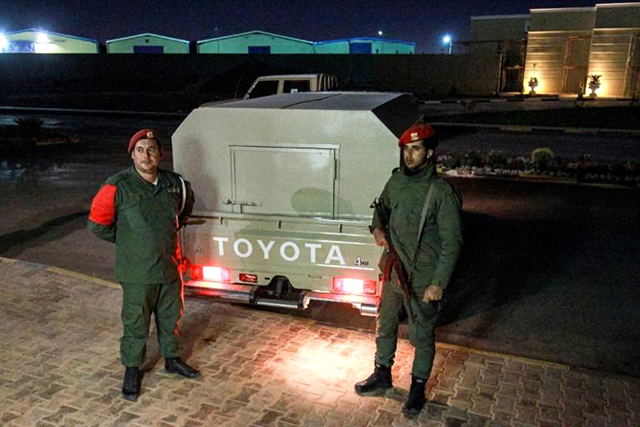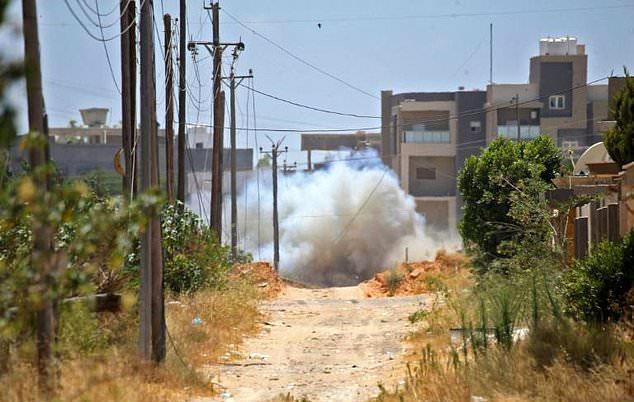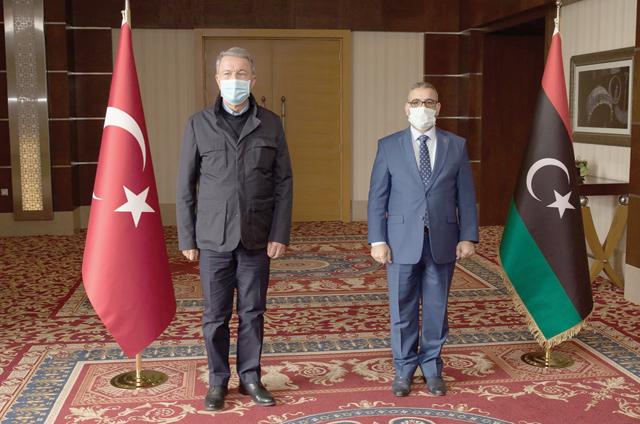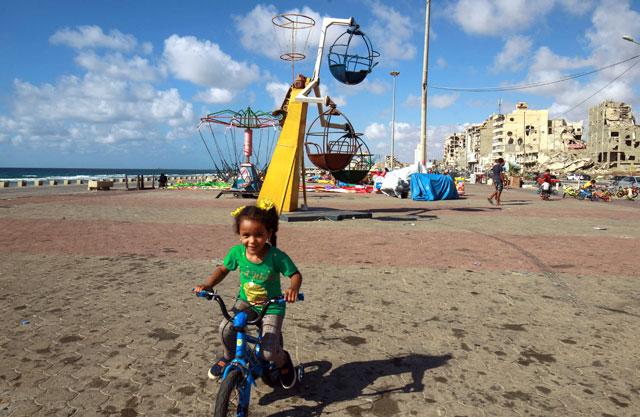You are here
Syrian rebel and regime forces now fight in Libya
By AFP - May 19,2020 - Last updated at May 20,2020

Military police loyal to strongman Khalifa Haftar stand guard earlier this month outside a vehicle allegedly containing arrested Syrian mercenaries (AFP photo)
BEIRUT — While a ceasefire in Syria has reduced combat between rebels and government forces, mercenaries from the two sides are still fighting in Libya on behalf of their Russian and Turkish backers.
Turkey supports some Syrian rebels and Libya's UN-recognised Government of National Accord(GNA), while Russia supports Syria's President Bashar Assad and Libya's eastern-based strongman Khalifa Haftar.
Ankara and Moscow brokered the recent truce in Syria but fighting is ongoing in Libya, where Haftar's forces have been trying to seize Tripoli for over a year.
A recent rapprochement between Assad and Haftar shows the increasing overlap between the two conflicts.
In March, Libya's parallel eastern government reopened the Libyan embassy in Damascus after it was closed in 2012, while flights resumed recently between the Syrian capital and Benghazi, Haftar's domain 1,000 kilometres east of the Libyan capital.
A recent confidential United Nations report identified 33 flights by Syria's private Cham Wings Airline to Libya this year, believed to be carrying Syrian mercenaries.
"It is estimated from ground sources that the number of Syrian foreign fighters supporting [Haftar's] operations is less than 2,000," wrote the UN experts, who are monitoring an arms embargo on Libya.
The experts alleged that Cham Wings flew the Syrians to Libya for three-month contracts with Russian private military company Wagner, who reportedly recruited the mercenaries to fight for Haftar. Moscow denies any role in the presence of Russian mercenaries in Libya.
When the UN panel asked Damascus about the flights to Benghazi, the Syrian government said the flights were for civilians, "particularly those Syrians living in Libya".
"The panel is unconvinced of the veracity of that response," the UN experts wrote.
'Common enemy'
Damascus and Haftar have a "common enemy" in Turkey, Oxford University researcher Samuel Ramani notes.
Russia may be behind the warming relationship between Syria and the Libyan strongman, Ramani said.
For Moscow, "the aim would be to warn Turkey that it could retaliate asymmetrically against Turkish military actions in Syria with a reciprocal escalation in Libya, creating two fronts for Turkey and forcing it to overstretch", he told AFP.
The UN experts estimated that up to 5,000 Syrian mercenaries may be in Libya, including "those fighters recruited by Turkey in support of the GNA".
Turkey has acknowledged sending fighters to support the GNA in Libya, but has not specified the number.
The Syrian Observatory for Human Rights believes the number to be much higher and says Turkey has sent 9,000 Syrian mercenaries to Libya, including 150 minors.
Observatory head Rami Abdel Rahman said "3,300 more fighters are being trained in Turkish bases" before being sent to front lines south of the Libyan capital.
Abdel Rahman said the Syrian mercenaries belong to the National Army, a coalition of pro-Turkish Syrian rebels based in Idlib province, and estimated that 298 of them have been killed in Libya, including 17 child soldiers.
He was unsure of the number of Syrian mercenaries supporting Haftar.
Oxford academic Ramani said many of the mercenaries were motivated to escape "poverty, unemployment and socioeconomic deprivation in Syria".
Russia had recruited the mercenaries, who fought alongside Wagner group in Libya, Ramani said.
Foreign involvement in Libya and Syria has exacerbated both conflicts, in which hundreds of thousands have been killed and millions displaced.
Related Articles
TRIPOLI — Mines have killed or wounded more than 100 people, including many civilians, south of Libya's capital following deadly combat betw
TRIPOLI — Turkey's Defence Minister Hulusi Akar made a surprise trip to Libya on Saturday, two days after Khalifa Haftar urged his fighters
CAIRO — The Arab League on Tuesday called for the withdrawal of foreign forces in Libya and urged for talks on ending the conflict in the no














